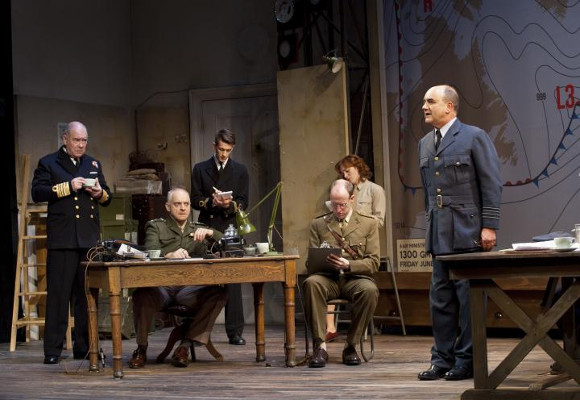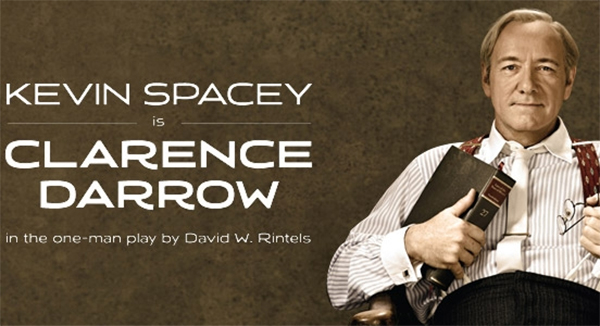Pressure (Chichester Festival Theatre)

© Drew Farrell
A clash between two weathermen doesn't sound like a promising notion for a drama. Meteorologists normally impinge on the public consciousness when they get things spectacularly wrong – witness the vituperation poured on Michael Fish after the great storm. It's not an inappropriate analogy: Fish's defence "This is not a hurricane" is aired here.
David Haig, who wrote the play, takes on the formidable challenge of giving life to Dr James Stagg, chief meteorological officer for the Allied Forces. Director John Dove keeps the action driving along and keeps us gripped – no easy task when much of the talk is of arcane terminology.
The play opens when Stagg arrives at Allied Forces headquarters to give weather guidance for the Allied invasion on 5 June. Stagg fears the worst and immediately finds himself at odds with US weatherman Irving Krick, who predicts fair weather. There's little dramatic tension, though as the whole world knows that the invasion took place on the following day.
The main focus of the play is not the Stagg/Krick stand-off but some of the more human elements. Beneath his dour exterior Stagg is revealed as a man struggling to maintain focus as his wife is in a difficult labour – the tension of whether mother and/or child will survive far exceeds the meteorological arguments.
Haig brings the man behind the forecasts to life. Malcolm Sinclair is an ebullient Eisenhower, driving forward with his plans for invasion but capable of meditating on the fates facing his soldiers, like a latter-day Henry V. And Tim Beckmann is excellent as the cocksure Krick.
Best of all is Laura Rogers' sympathetic WAAC officer, maintaining a brisk, business-like exterior throughout the play whilst gradually revealing some hidden emotions.
The play could probably do with some trimming: there’s a little too much scientific detail – we hear so much about isobars and occluded fronts, there are times when it sounds like a dramatised shipping forecast.
Haig is to be commended for finding something new to write about D Day, something I'd have thought impossible. He takes a few liberties with the true story, writing weatherman Sverre Pettersen out of the equation, but a Norwegian wouldn’t have suited. Stagg is so "Scottish", yells Eisenhower in frustration, and his Scottishness is much played upon.
Above all, how refreshing to be reminded of the importance of meteorologists and other backroom staff – theirs is a story that’s often forgotten.











